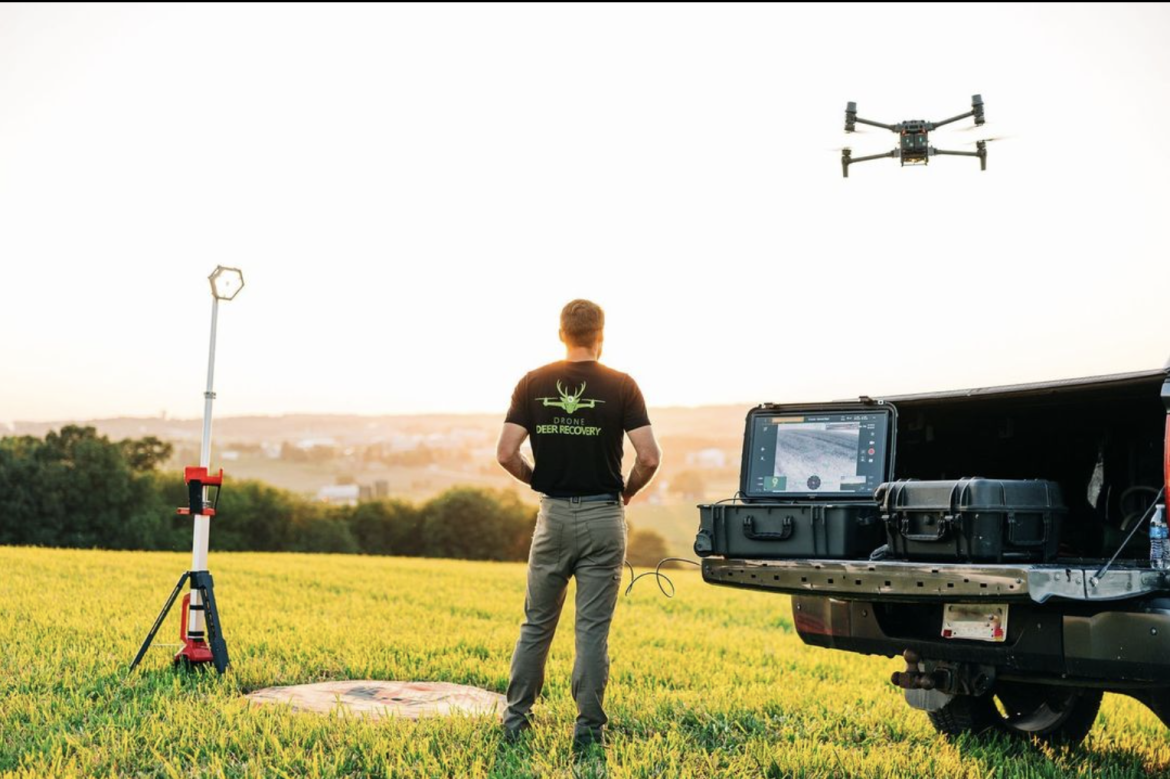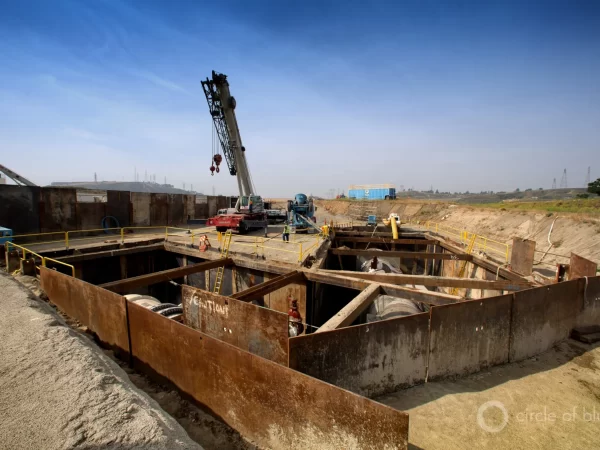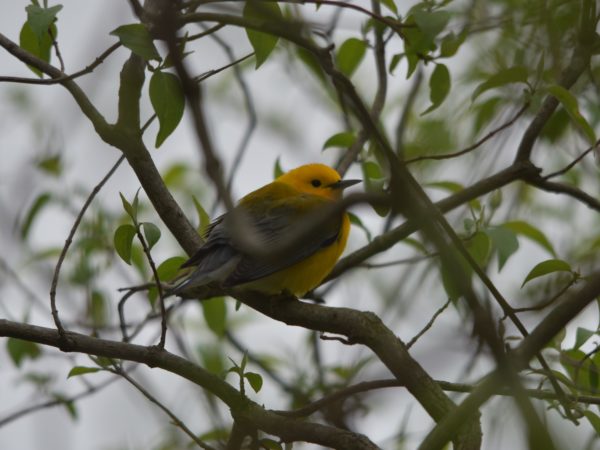
This article was republished here with permission from Great Lakes Echo.
By Ben Eiler, Great Lakes Echo
The founder of a company that uses drones to recover deer carcasses that hunters cannot find says that Michigan’s prohibition of the practice violates his First Amendment rights.
The suit questions one of the core principles of hunting and fishing in the United States, some experts say.
It was filed last June by Mike Yoder of Dundee, Ohio, the founder of the 15-month-old Drone Deer Recovery and has caught the attention of many natural resource officials around Michigan.
This case begs the question: How should drones be used in Michigan?
The question “definitely isn’t going away,” Yoder said. “They’re just going to have to figure out how to deal with it.”
Yoder dreamed up the company when talking to a friend about their shared passion for hunting. The company will find and recover a deer that a hunter shoots but cannot find. After a deer is shot and presumed dead, Yoder heads out to the general area where the hunter thinks the deer might be. He then flies an infrared camera over the area looking for heat signatures. Once one is found, he switches to a camera with a zoom lens to see if it is the hunter’s deer or simply a bedding deer.
Yoder has already garnered a substantial online following, and a nationwide market of interested hunters, he said. In just the 2022 hunting season, Yoder recovered more than 100 deer around the country.
However, the company has run into roadblocks in many states, including Michigan, which have strict no-drone hunting policies. Every other Great Lakes State, according to hunting information produced by each state, has prohibited the use of drones to actively kill wildlife. But each state has a different set of regulations on carcass recovery the rules are unclear or confusing to hunters or even set on a case-to-case basis.
Yoder is suing the state in Michigan’s Western District federal Court, arguing that due to his First Amendment right to free speech, he should be allowed to share the location of downed deer carcasses with his clients. The case is in discovery. A court date has not been set.
Michigan officials say that it isn’t an issue of free speech, but rather one of fair chase.
One of the most common concerns is that drones’ “continued and expanded use violates the fair chase doctrine,” said Tom Baird, who chairs Michigan’s Natural Resources Commission, a group appointed by the governor to set hunting and fishing regulations.
The Fair Chase Doctrine is a hunter’s honor code written by the Boone and Crockett Club, a wildlife conservation organization founded by Theodore Roosevelt. The club defines fair chase as “the ethical, sportsmanlike, and lawful pursuit and taking of any free-ranging wild game animal in a manner that does not give the hunter an improper or unfair advantage over the game animals.”
Nationwide, many of the regulations regarding hunting and fishing are established with the fair chase principle as a core value, Baird said.
Fair chase means that hunting and fishing do not have a known outcome, he said. New technology including drones can create a higher level of efficiency in hunters. There are many people out there who think these new technologies “are just unfair.”
The idea of these technologies becoming commonplace Baird said makes him “frankly, uncomfortable.”
That sentiment is backed by Michigan’s Natural Resources and Environmental Protection Act.
Drone Deer Recovery’s services violate Michigan law, said Dave Shaw, the chief of the Law Enforcement Division of the state Department of Natural Resources. The law passed in 2015 prohibits someone from taking “game or fish using an unmanned vehicle or unmanned device that uses aerodynamic forces to achieve flight or using an unmanned vehicle or unmanned device that operates on the surface of water or underwater.”
The law was written broadly, using take as “a catch-all term to cover all aspects of the pursuit of wildlife, not just the shooting/killing of such,” Shaw said.
The use of drones has other implications for outdoor recreation beyond finding deer. In a 2021 study published in the journal Ambio, a group of international researchers found that internet searches of “drone fishing” have dramatically increased around the world, and seem like they will continue to do so, with the United States having the 5th highest searches.
Drone fishing, the study explained, is when drones “are used to either transport baited lines into otherwise inaccessible areas or to perform reconnaissance and identify optimal areas for fishing including, for example, fish aggregations or essential fish habitat.”
These tactics, the study said, may lead to overly effective fishing, which could put even more strain on the world’s fisheries. And many individuals and groups around the world question the ethics of the practice.
In Michigan a drone may not be directly connected to the bait, line or lure, said Randy Claramunt, chief of fisheries at the Michigan Department of Natural Resources. But drones may be used to find fish habitat or to spot fish from the air. This is not a common practice yet, said Claramunt, but he certainly could see it becoming more popular.
While drones can present the risk of overfishing, Claramunt said that doesn’t concern him due to his agency’s firm control on fishing.
His concerns rest more with the ethical and social issues and discourage low-income residents from participating, Claramunt said. Drones could “create unfair opportunities for some anglers who can either afford them or know how to use them versus others who can’t.”
He worries about creating a perspective of “well if I don’t have this technology, then why buy a fishing license, why take advantage of this incredible opportunity that we have in a state like Michigan for fishing?”
Nevertheless, Claramunt hopes that drones can become “just another opportunity for [Michiganders] to get excited about the incredible fisheries in Michigan instead of an impediment to being involved (in) or enjoying this activity.”
At least some anglers agree.
“I would love to try drone fishing when it’s legal,” said Laura Whitman a 24-year-old angler from Holland, who has been fishing since she was five years old. “It sounds exciting.”
Why can drones be used to find fish, but not recover downed deer?
That is tough to answer, Baird said. And with new technologies coming out every year, wildlife officials will continue to struggle with similar questions.
But in this case, Baird said that it depends if a person is actively hunting and fishing while using a drone. If you’re using a drone to just find a deer or a fish, then he believes that would be alright. But when you start to use them to fish or hunt, and in Michigan recovering a deer is considered part of hunting, he thinks that’s when it crosses the line.
There needs to be clearer rules in place, Baird said. “It’s inevitable that we’ll have to consider additional regulation at some juncture, we simply don’t have anything in the pipeline right now.”
Catch more news at Great Lakes Now:
Twenty companies pledge to use all parts of Great Lakes fish by 2025
Featured image: Mike Yoder, founder of Drone Deer Recovery, flies a drone used to recover deer carcasses. (Photo Credit: Drone Deer Recovery)




